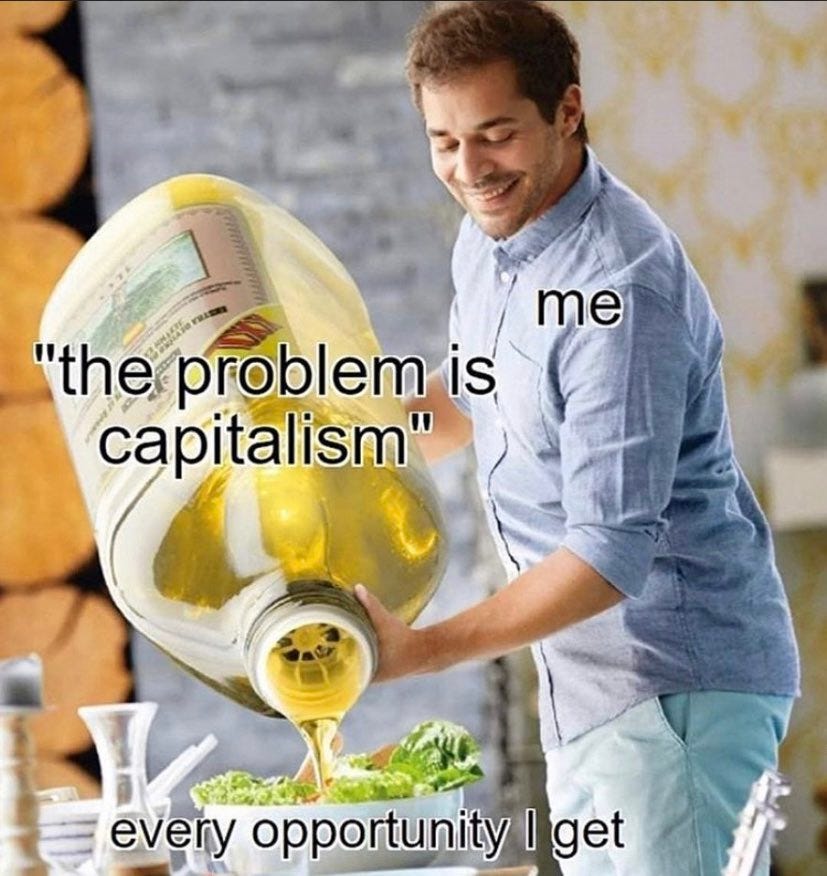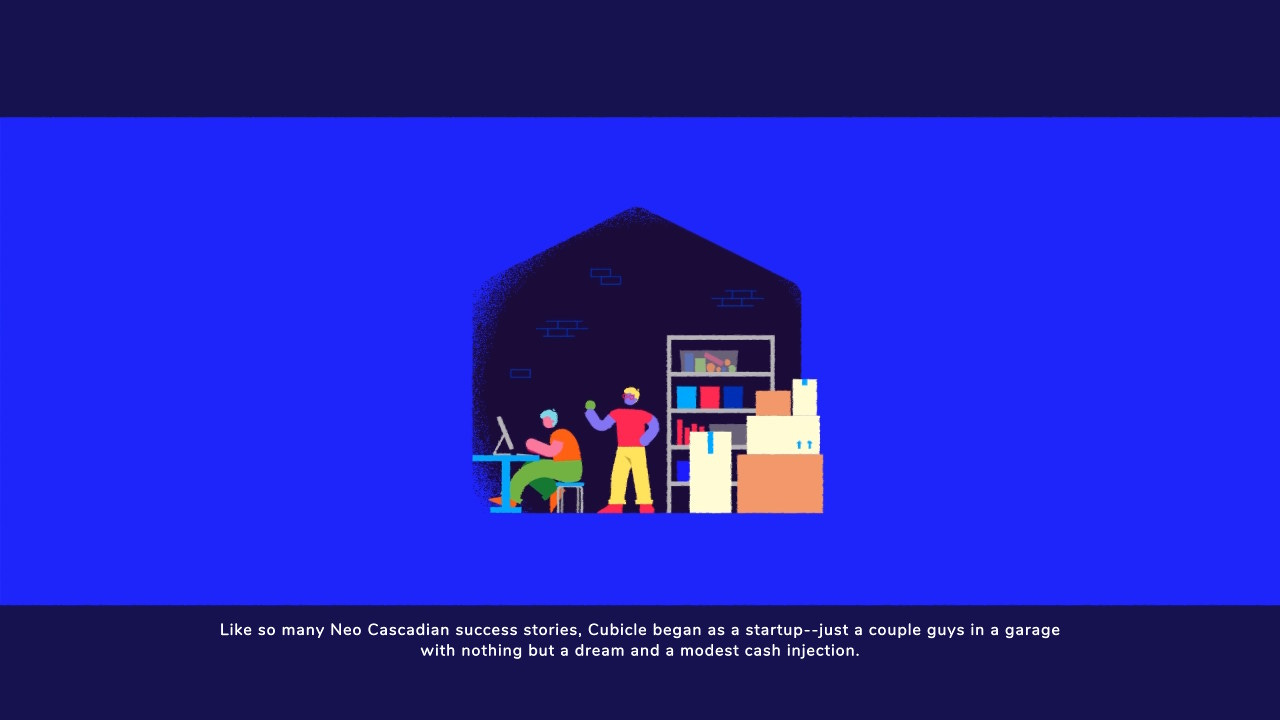2020: The Problem is Capitalism
When this year began, I intended, as I always do, to catch up on my backlog. My initial docket was full of dads: God of War (2018), Nier, and The Last of Us Part II along with the handful of indie games that have been slowly gathering digital dust in my PlayStation, Switch, and PC libraries. Between my full-time job and assorted commitments, my backlog has become a purely aspirational thing; despite my lofty goals I never dreamed I would actually come close to completing the games I set out to play in a given year.
But 2020 has made fools of us all, and it turned into a year where the conniving hand of fate laid waste to even the most careful plans and I, uh, spent a lot of time at home. The backlog was destroyed and rebuilt anew. And at some point it was no longer the year of the dad game. Instead, it was the year of Games About Capitalism—and on this front, 2020 really, truly delivered.
It has never been easier to see the flaws on the shiny surface of capitalism as a whole than it was in 2020, a year in which U.S. billionaires gained nearly $1 Trillion in wealth while the workers on whom these billionaires depend for labor faced the no-win choice of risking a deadly virus spreading in their workplace or sinking into poverty. The injustice of the capitalist system was exacerbated by mass unemployment and the U.S. government's inaction, resulting in 1 in 4 American adults being unable to pay their bills and forcing 1 in 3 to dip into their savings. Statistics aside, few things highlighted the extreme wealth gap disparity like working-class people struggling to pay rent and relying more than ever on food banks and unemployment assistance while the wealthiest Americans took luxury vacations and profited by selling their stocks ahead of the market crash.
To be clear, income inequality has existed (and been a problem) for decades, and none of these games were developed overnight—the development cycles for Kentucky Route Zero and Final Fantasy VII Remake in particular spanned the better part of the 2010s. However, it's difficult to think of a topic that's more of the moment than the various ways in which capitalism fails the laborers on which it profits. What I most liked about these games, and why I consider them my games of the year is that they don't just explore the effects of capitalism, but also give players a way to push back against those injustices within the confines of their respective worlds. So, in no particular order, here are the best games I played in 2020.
Kentucky Route Zero
Developer: Cardboard Computer | Publisher: Cardboard Computer, Annapurna Interactive
At this point, I think Kentucky Route Zero has to be one of the most written-about games ever, and deservedly so. It's difficult to believe the final act of which was released in 2020, a year which has thoroughly warped my perception of time by alternating between feeling far too long and much too short. Taking place over the course of one very long night, Kentucky Route Zeroachieved the same effect on a much smaller scale by turning that journey into a magical realist odyssey. The player's job is to make an antique store's final delivery, a straightforward goal that lays the background for a story that has a lot more to say about the inherent violence of a capitalist system than it does about 19th century furniture.
I've thought about this game more times than I can count over the course of the year, about how effectively it demonstrates the ease with which Americans fall through safety nets that were never designed to support them as well as the ease with which megacorporations prey on them. Kentucky Route Zero isn't necessarily a fun game to play, but I appreciated the beauty and grace with which the story was told and the lasting impression it left.
Going Under
Developer: Aggro Crab | Publisher: Team 17
Going Under is a satirical rogue-lite in which unpaid intern Jackie Fiasco discovers her job at meal-replacement seltzer company Fizzle will not be marketing, but rather clearing the remnants of failed tech startups from the basement of Fizzle's coworking space. Jackie's story isn't unique—rather, it's an indictment of how companies exploit interns, promising experience or dangling the carrot-on-a-stick of a full-time role in exchange for labor that is free to the company. It is funny, and cathartic, and barely satire because the startups, products, and characters are only a hair's breadth more ridiculous than reality.
What I appreciate most about Going Under is that it's just a simple concept done really well. The range of weapons, along with the different combinations of mentors and skills on Jackie's "resume" kept the play varied and interesting while poking fun at startup culture's worst impulses—namely, the empty gesture of corporate swag and how startup jargon has become the language of neoliberalism. And while games can't fix broken systems, it is satisfying as hell to beat the crap out of the embodiment of capitalism with a baseball bat.
Paradise Killer
Developer: Kaizen Game Works | Publisher: Fellow Traveler
I grew up reading a steady diet of mystery novels, but mystery games are a slightly more sparse genre, so when I heard about Paradise Killer I knew I would never be able to resist its charms. And charming it is: Paradise Killer is a flashy, vaporwave, open-world murder mystery wrapped in a visual novel in which investigator Lady Love Dies is sent to "save Paradise" and learn the truth behind the murder of Paradise Island's council. And investigating feels good. It takes a thorough exploration to learn all of the secrets the world and its characters have to offer. It feels worthwhile to painstakingly gather information to be presented at trial.
Yet for every salacious piece of gossip Lady Love Dies uncovers, the player learns less flattering pieces of information, including the fact that the island is literally built on the backs of the poor for an elite ruling class. While it doesn't cheapen the investigation itself, it forces the player to consider the question of whether Paradise can be saved or if it's worth saving.
Final Fantasy VII Remake
Developer: Square Enix
Having never played Final Fantasy VII as a child (and thus having no sentimental attachments) I had few expectations for the long-awaited Final Fantasy VII Remake. One of the most exhausting phenomenons in entertainment is the seemingly endless stream of reboots and remakes that have overtaken the industry over the last decade, though this isn't to say there are no good ones. For me the hallmark of a good "new" version is whether it can add anything to what its predecessor did, whether it's thematically, visually, or narratively.
I know Remake was contentious for many fans, but I agree with Nola Pfau's essay for Sidequest in that now feels like the perfect moment for this story. Between the rise of Big Tech, the explosion of wealth among the U.S.'s 1%, and the worsening climate crisis, it seems like things have only changed for the worse since Final Fantasy VII was released in 1997. The metaphor of Midgar's most vulnerable living under an enormous metal plate that hangs over their head like a blunted guillotine while the ruling class looks down from the top of the plate was never subtle, but the real-life wealth divide now feels just as stark and obvious.
As Final Fantasy VII is one of the most storied and celebrated games in video game history, it's difficult to imagine that a one-to-one retreading of that story would have added much to the conversation despite its relevant themes. I appreciated that Remake was deliberate in taking control of its own legacy while maintaining the themes that made it one of the most beloved video game stories of all time.
Regardless of how it compares to the original, Remake is a game for a younger generation—a generation that is already standing up to the unjust and dangerous policies that threaten our futures. Final Fantasy VII Remake gave Cloud and the rest of Avalanche the tools to fight for their lives and stories, to spit in the face of an unacceptable destiny and take control of not just their futures, but the future of the planet. I loved every moment of it. The idea that the future is worth fighting for is has never been more relevant or necessary, no matter how cheesy or earnest that sounds.
Nier
Developer: Cavia | Publisher: Square Enix
It's difficult for me to think of a game that is more of-the-moment than Nier despite the fact that it came out in 2013. Of everything I played in 2020, I spent the most time in Nier's apocalypse, trying to help the titular character fight through poverty and a non-existent healthcare system so he could save his daughter Yonah. Did I mention the game is also set in a slow disaster of a pandemic?
Nier is perhaps less explicitly About Capitalism than the other games I've discussed, but its parallels to our own world are undeniable. Perhaps, for this reason, I shouldn't have found it as comforting as I did, but I admired the genuine care each of the party members showed for one another. I liked that the last of the game's five endings emphasizes the love Nier feels for his friends and family. I loved that most of the sidequests had little bearing on the overall story, but that they mattered to the people in Nier's community. Part of the final ending's cruelty is that completing it erases the player's save file, effectively wiping your efforts from anyone's memory. Despite that, I'm never going to forget the profound and thought-provoking effect Nier had on me.


